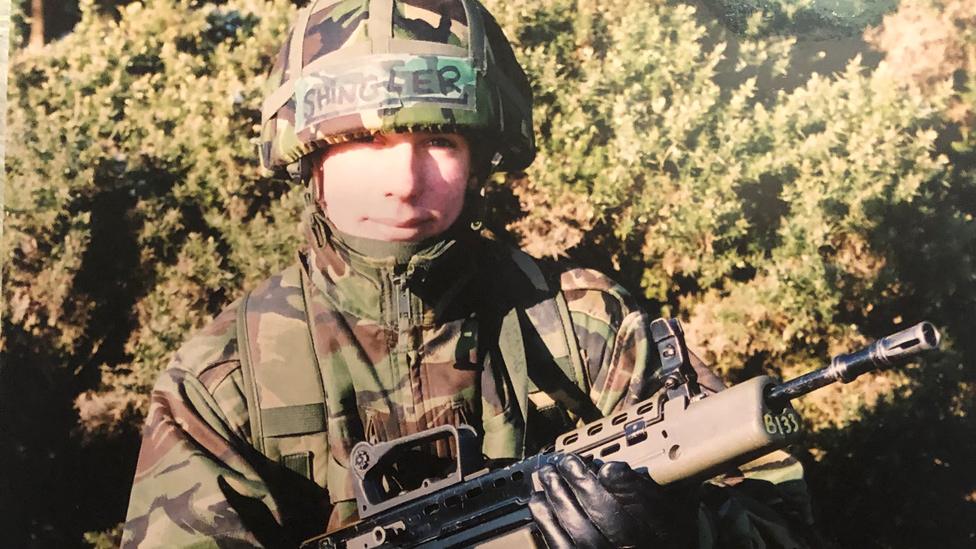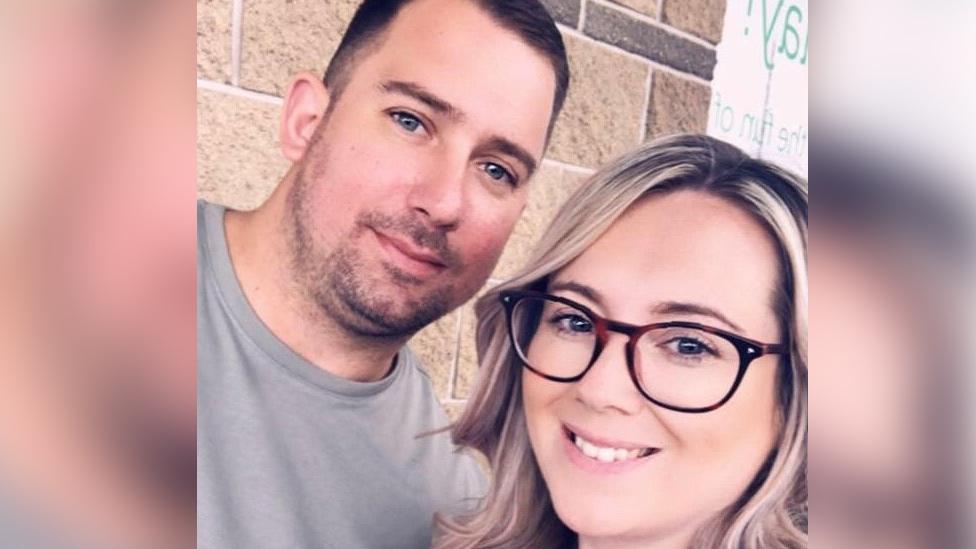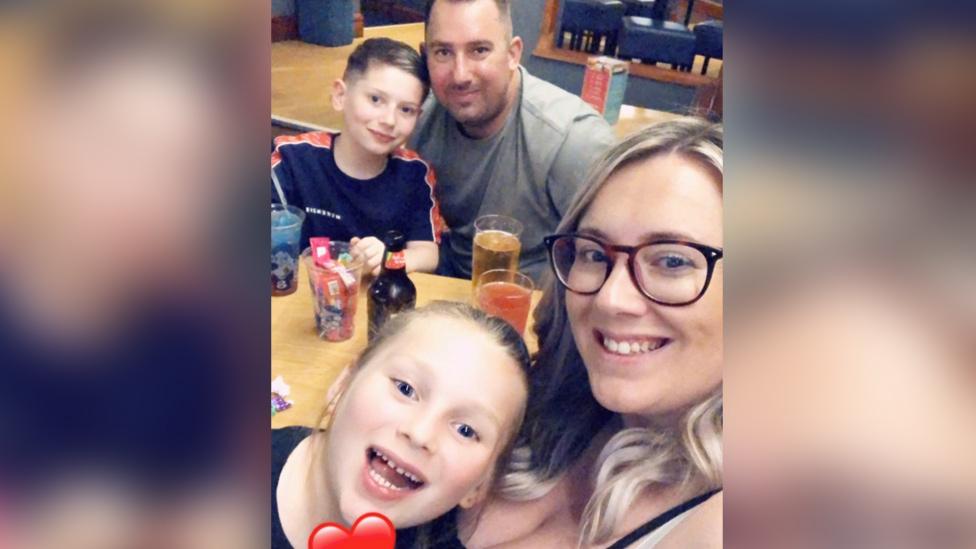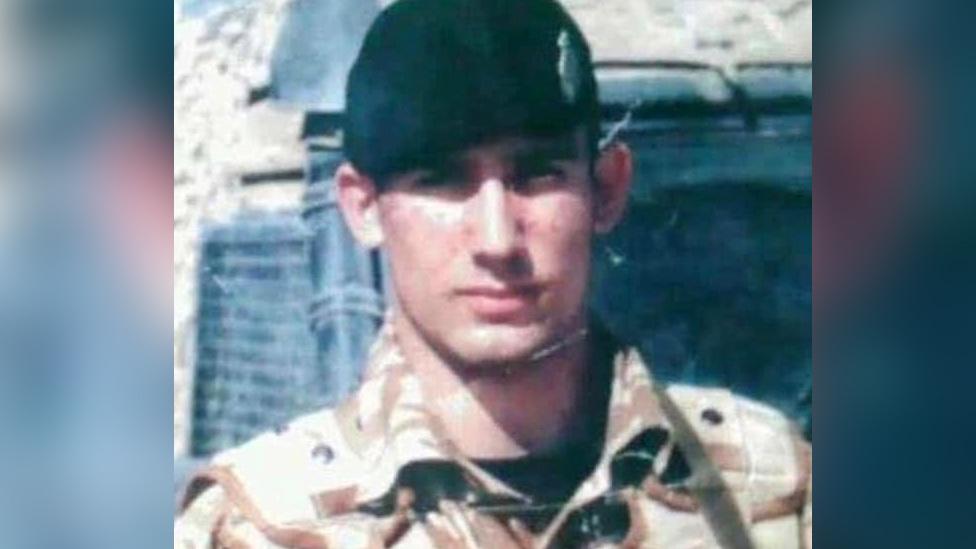Lance Shingler: Iraq veteran with PTSD died after overdose
- Published

Lance Shingler served with the Army in Northern Ireland and Iraq
An Iraq veteran who faced "harrowing" post traumatic stress disorder (PTSD) died after taking an overdose while "intoxicated", a coroner concluded.
Lance Shingler, 34, from Solihull, died on 13 February 2020.
Coroner Louise Hunt recorded a narrative verdict and said she did not have sufficient evidence he intended to take his own life.
Mr Shingler's partner Hayley Gough said she believed his death could have been avoided with the right treatment.
The inquest heard he had been receiving mental health treatment from the NHS from 2011 and later from other third-sector providers, like charity Combat Stress, which specialises in support for veterans.
Ms Hunt also heard his discharge from NHS mental health services days before his death was "premature", an internal review by Birmingham and Solihull Mental Health NHS Trust had found.
But the coroner said it was a "matter of speculation as to what would have happened" if the former Royal Green Jackets rifleman had stayed under the trust's care.

Hayley Gough welcomed the coroner's findings and said more could have been done to support her partner
She said Mr Shingler suffered PTSD from "witnessing harrowing, traumatic incidents" in Iraq, which marked the start of a "tragic sequence of events".
Several agencies tried to help him, but due to the effects of the trauma "he was often unable to engage with the services" and often used alcohol and drugs, Ms Hunt added.
The inquest heard his records showed several occasions between 2017 and 2020 when he went to A&E after either self-harming or reported suicide attempts.
Before his death, the lorry driver had a crash which led to his HGV licence being revoked on 30 January which "had a significant adverse effect on his mental health".

Hayley Gough described her partner as the love of her life and an "amazing" father
Separately, Combat Stress's funding arrangements changed and Mr Shingler was told on 9 February he would be referred to NHS providers instead.
Ms Hunt said: "Understandably, we know receipt of that letter did cause distress to Lance."
He walked out of a voluntary psychiatric assessment on 5 February telling staff "I won't get the support I need here" and on 11 February went drinking with a friend which ended with a stranger punching him.
Later he told Ms Gough "he wanted to die", took what the coroner said was an "impulsive" overdose while drunk and died in hospital on 13 February.
At the start of the inquest, Ms Gough said her partner had been the love of her life and an "amazing daddy" to their two children.
Former veterans' minister, Johnny Mercer MP, who has offered support for the family, said the government needed to realise its duty to veterans.
"The challenges in care pathways and case-ownership are well known," he said.
The government has previously said it was committed to providing mental health care for veterans.
Combat Stress Chief Executive, Jeff Harrison, said the charity had scaled back services after the government redistributed funds, but new funding from NHS England meant it had since "resumed taking new referrals".
If you have been affected by issues raised in this story, sources of support are available via the BBC Action Line.

Follow BBC West Midlands on Facebook, external, Twitter, external and Instagram, external. Send your story ideas to: newsonline.westmidlands@bbc.co.uk, external
Related topics
- Published13 May 2021

- Published12 May 2021
